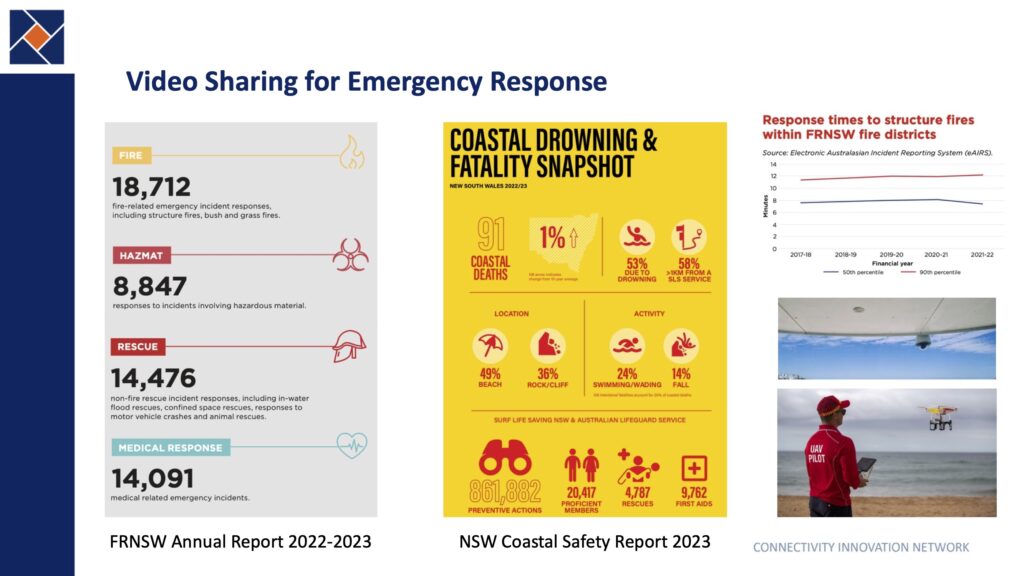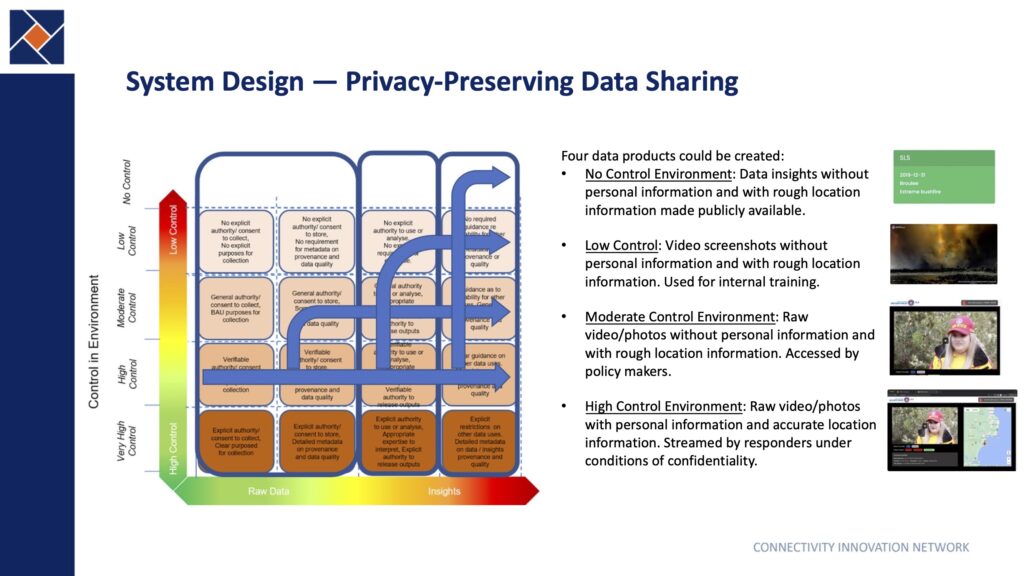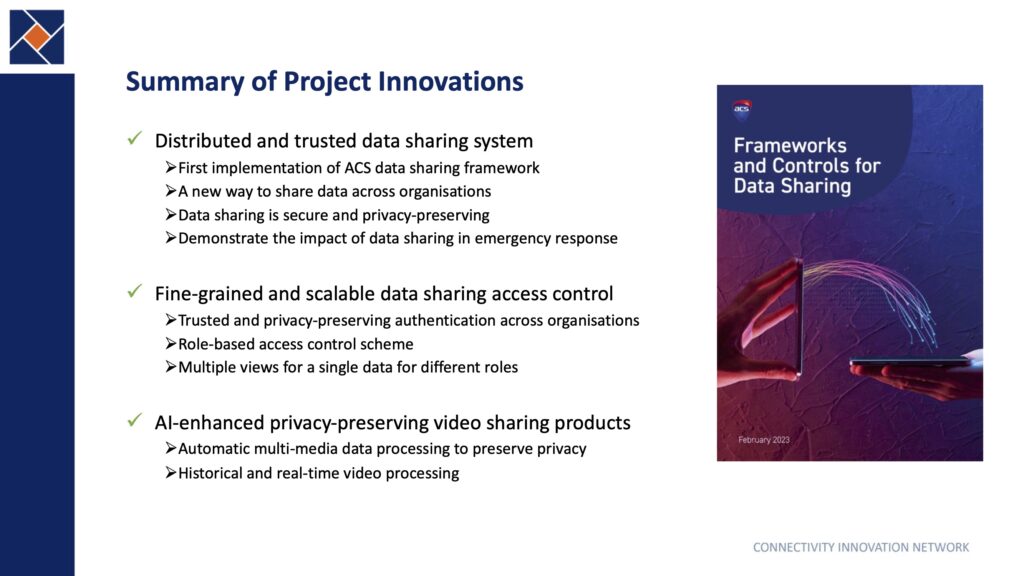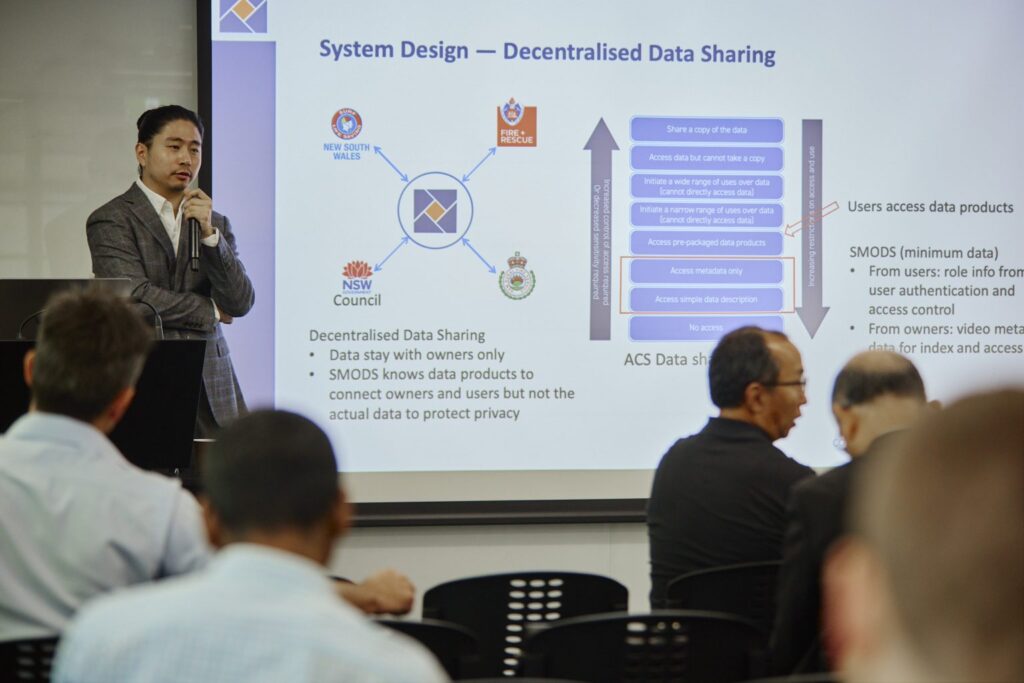The Secure Multi-Org Data-Sharing (SMODS) Project, is a game-changing data sharing platform which will enable secure and efficient data sharing between organisations. This project has a strong focus on real time multi media data sharing between Emergency Service Organisations (ESOs) for improved situational awareness during emergency events. Led by the University of Technology Sydney (UTS) in consultation with World Data Exchange, SMODS aims to reshape emergency response capabilities through this innovative technology.
Demonstration: SMODS for emergency response
Demonstration: Video processing and publishing
Challenges
In high-stakes scenarios, the speed and reliability of data dissemination are paramount. Traditional data-sharing platforms are plagued by delays, data silos, and privacy issues, severely hampering the effectiveness of emergency responses. These platforms often struggle with:
• Slow dissemination of critical information,
• Fragmented communication channels between organizations,
• Inadequate privacy protections and cumbersome manual data-sharing processes.

The SMODS Solution
SMODS introduces a web-based, decentralized, privacy-preserving data-sharing platform that utilizes state-of-the-art technology to overcome these challenges. Key features of SMODS include:
• Australian Computer Society’s Data Sharing Framework: This framework evaluates privacy levels, assesses access risks, and manages data lifecycles to ensure compliance and security.
• Role-Based Access Control (RBAC): This security model allows only authorized personnel to access sensitive data, enhancing security and operational integrity.
• OAuth Authentication: Facilitates secure server-to-server authentication, seamlessly integrating with existing systems.
• AI-Driven Automation: Enables real-time data product generation, including secure video sharing, maintaining stringent privacy standards.

Applications and Impact
The versatility of SMODS makes it invaluable for:
• Emergency Services: Enhances decision-making capabilities with quick access to accurate, real-time data.
• Government Agencies: Provides a secure and scalable platform for efficient communication between public and private sectors.
• Multi-Organizational Collaboration: Fosters improved situational awareness and operational efficiency through streamlined data sharing across various sectors.

Who benefits from this technology?
The SMODS Project benefits a wide range of organisations and communities, particularly:
Health Services – During emergencies, health services can access critical, real-time information about incidents, allowing them to allocate resources, secure patient routes, and ensure continuity of care under challenging conditions..
Emergency Service Organisations (ESOs) – ESOs benefit immensely from the platform’s real-time multimedia data-sharing capabilities, improving situational awareness, coordination, and decision-making during crises, ultimately enhancing response times and saving lives.
Government and Public Safety Agencies – These bodies gain a secure, reliable platform for inter-agency communication, enabling swift, data-driven responses to emergencies and enhancing public safety through coordinated efforts.
Local Communities and the General Public – Indirectly, the public benefits from improved emergency response and coordinated services, leading to faster, safer resolutions during disasters and enhanced protection of lives and property.
Private Sector and Critical Infrastructure Organisations – SMODS provides these entities with a secure communication link to collaborate with emergency services, enabling rapid coordination to protect critical infrastructure such as power, water, and telecommunications networks.

Conclusion
SMODS stands as a testament to the power of innovative technology in transforming emergency management practices. By bridging the gap between technology and practical application, SMODS not only enhances emergency response efforts but also sets a new standard for data security and efficiency in crisis situations. As we move forward, the continued development and expansion of SMODS will undoubtedly play a crucial role in shaping the future of emergency data management.
Learn more about our technology
[ProvSec24] DPAC: A New Data-Centric Privacy-Preserving Access Control Model
